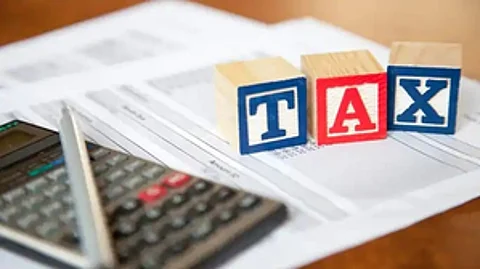

The government has officially notified the Income Tax Act, 2025, which consolidates and amends the income tax law provisions, replacing the over six-decade-old Income Tax Act, 1961.
The Act received the President’s assent on August 21, according to a gazette notification issued by the Ministry of Law and Justice.
The new simplified Act, which will come into effect from April 1, 2026, does not impose any new tax rate and only simplifies the language, making it easier to understand the income tax laws.
The new Act removes redundant provisions and archaic language and reduces the number of Sections from 819 in the Income Tax Act of 1961 to 536 and the number of chapters from 47 to 23. The number of words had been reduced from 5.12 lakh to 2.6 lakh in the new Income Tax Act.
"These changes are not merely superficial; they reflect a new, simplified approach to tax administration. This leaner and more focused law is designed to make it easy to read, understand and implement," Finance Minister Nirmala Sitharaman had informed Parliament.
The new Income Tax Bill 2025 was approved by Parliament on August 12, with the Rajya Sabha returning the Bill to the Lok Sabha, which had approved it on August 11.
"The largely dense and complex structure of the Income Tax Act, 1961, resulted in various interpretations, and several avoidable disputes kept mounting, not so much because of the rate, but because of the language. We were subjected to too many litigations. The density and complexity of the Act, along with the verbose way it was written over the decades, with different styles dominating, made the Act very, very tedious for anyone to use," Finance Minister Sitharaman said in the Rajya Sabha during the discussion on the bill.
The Income Tax Bill, 2025, was passed in the Lok Sabha on August 11 shortly after the Finance Minister tabled the revised bill, incorporating most of the recommendations made by the Parliamentary Select Committee, headed by BJP MP Baijayant Panda.